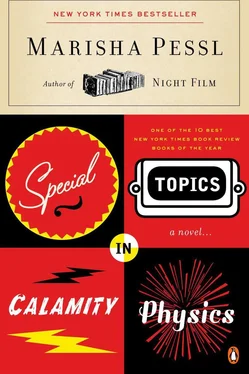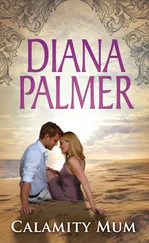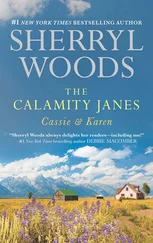She hesitated, then: “The Adirondacks.”
I’ll admit I almost leapt from my seat and boasted, “ I’ve saved a life too! My shot gardener!” but thankfully I had some tact; Dad and I held in contempt people forever interrupting fascinating conversations with their own rinky-dink story. (Dad called them What-About-Mes, accompanying said phrase with a slow blink, his gesture of Marked Aversion.)
“He’d fallen, injured his hip.”
She said it slowly, deliberately, as if playing Scrabble, concentrating on sorting the letters, compiling clever words.
“We were alone, in the middle of nowhere. I panicked — I didn’t know what to do. I ran and ran. Forever. Thankfully, I found campers who had a radio and they sent help. After that, I made a pact with myself. I’d never be helpless again.”
“So the man was okay?” Leulah asked.
Hannah nodded. “He had to have surgery. But he was fine.”
Of course, further inquiry into this intriguing incident—“Who was the guy?” Charles asked — was trying to scratch a diamond with a toothpick.
“Okay, okay,” Hannah said, laughing as she cleared Leulah’s plate, “that’s enough for tonight, I think.” She kneed the swish door (a little aggressively I thought) and vanished into the kitchen.
We usually sat down for dinner around 5:30 P.M. Hannah turned off the lights, the music (Nat King Cole demanding to be flown to the moon, Peggy Lee sermonizing you’re nobody ’til somebody loves you), lighting the thin red candles at the center of the table.
Dinner conversation wasn’t anything Dad would be particularly impressed with (no debates about Castro, Pol Pot and the Khmer Rouge, though sometimes she brought up materialism; “It’s hard, in America, not to equate happiness with things.”), but Hannah, chin in her hand, eyes dark as caves, was a master of the Art of Listening, and thus dinners could last two, three hours, maybe even longer, if I hadn’t been the one who had to get home by eight. (“Too much Joyce isn’t good for you,” Dad said. “Bad for digestion.”)
To describe this singular quality of hers (which I believe holds one of the brightest lanterns to her sometimes shadowy profile) is impossible, because what she did had nothing to do with words.
It was just this way about her.
And the wasn’t premeditated, condescending, or forced (see Chapter 9, “Get Your Teen to Consider You the ‘In’ Crowd,” Befriending Your Kids , Howards, 2000).
Obviously, being able to simply was a skill supremely underestimated in the Western world. As Dad was fond of pointing out, in America, apart from those who won the lottery, generally all Winners were in possession of a strident voice, which was successfully used to overpower the thrum of all the competing voices, thereby producing a country that was insanely loud, so loud, most of the time no actual meaning could be discerned — only “nationwide white noise.” And thus when you met someone who listened, someone content to do nothing but, so overwhelming was the difference, you had the startling and quite lonely epiphany that everyone else, every person you’d encountered since the day you were born who’d supposedly listened, had not really been listening to you at all. They’d been subtly checking out their own reflection in the glass bureau a little to the west of your head, thinking what they had to do later that evening, or deciding that next, as soon as you shut up, they were going to tell that classic story about their bout of Bangladeshi beachside dysentery, thereby showcasing how worldly, how wild (not to mention how utterly enviable) a human being they were.
Hannah did ultimately speak, of course, but it wasn’t to tell you what she thought or what you had to do, but only to ask you certain relevant questions, which were often laughable in their simplicity (one, I remember, was, “Well, what do you think?”). Afterward, when Charles cleared the plates, Lana and Turner jumped into her lap, fashioning her arm bracelets out of their tails, and Jade turned on the music (Mel Tormé detailing how you were getting to be a habit with him), you didn’t feel the edgy feeling of being alone in the world. As stupid as this sounds — you felt you had an answer.
It was this quality, I think, that made her have such an influence on the others. She was the reason Jade, for example, who sometimes talked of becoming a journalist, joined The Gallway Gazette as a freelance writer even though she downright loathed Hillary Leech, the editor in chief who pulled out a copy of The New Yorker and read it before every class (sometimes chuckling irritatingly at something in “The Talk of the Town”). And Charles sometimes carried around a three-inch textbook, How to Be a Hitchcock (Lerner, 1999), which I secretly paged through one Sunday and beheld the first-page inscription: “To my master of suspense. Love, Hannah.” Leulah tutored fourth-graders in Science every Tuesday after school at Elmview Elementary, Nigel read The Definitive Foreign Service Exam Study Guide (2001 ed.), and Milton had taken an acting class at the UNCS the previous summer, Introduction to Shakespeare: The Art of the Body — acts of humanitarianism and self-improvement I couldn’t help but think had originally been Hannah’s suggestions, though proposed in her way, they probably believed they’d thought of it themselves.
I, too, was not immune to her brand of inspiration. At the beginning of October, Hannah arranged with Evita for me to drop out of AP French with drapery-drab Ms. Filobeque and enroll with a bunch of freshmen in Beginning Drawing with the Dalí-decadent Mr. Victor Moats. (I did so without breathing a word to Dad.) Moats was Hannah’s favorite teacher at Gallway.
“I absolutely adore Victor,” she said, biting her bottom lip. “He’s wonderful. Nigel’s in one of his classes. Isn’t he wonderful? I think he’s won derful. Really.”
And Victor was wonderful. Victor sported faux suede shirts in Permanent Magenta and Burnt Sienna and had hair that, under the art room lights, channeled the gleam of film noir streets, Humphrey Bogart’s wingtips, opera footlights and tar, all at the same time.
Hannah also bought me a sketchbook and five ink pens, which she wrapped in old-fashioned parcel paper and sent to my school mailbox. (She never talked about things. She simply did them.) On the inside cover, she’d written (in a handwriting that was a perfect extension of her — elegant, with tiny mysteries in the curves of her n ’s and h ’s): “For your Blue Period. Hannah.”
In the middle of class, occasionally I’d take the thing out and covertly try to draw something, like Mr. Archer’s ranidae hands. Though I showed no signs of being an untapped El Greco, I enjoyed pretending I was a rheumatoid artiste, some Toulouse concentrating on the outline of bony arm of a can-can girl, instead of plain old Blue van Meer, who might go down in history for the talent of feverishly copying down every syllable a teacher uttered (including um s and eh s) in case it showed up on the Unit Test.
In her absorbing memoir, There’s a Great Day Coming Mañana (1973), Florence “Feisty Freddie” Frankenberg, a 1940s their-girl-Friday actress whose great claim to fame was appearing on Broadway with Al Jolson in Hang On to Your Handkerchiefs (she also palled around with Gemini Cervenka and Oona O’Neill), wrote in Chapter 1 that at first glance, Saturday night at the Stork Club was an “oasis of rarified fun” and that, despite WWII grimly unfolding across the Atlantic like a telegram delivering bad news, when one was in a “new gown, perched on those comfy banquettes,” one had the feeling “nothing bad could happen” because one was protected by “all the money and the mink” (p. 22–3). At second glance, however, as Feisty Freddie goes on to reveal in Chapter 2, the swanky Stork Club was in fact “as vicious as Rudolph Valentino with a dame who wouldn’t knock knees with him” (p. 41). She writes that everyone, from Gable and Grable to Hemingway and Hayworth, was so anxious about where the proprietor, Sherman Billingsley, placed them in the room, whether they’d be allowed into that rarefied-room-of-the-already-absurdly-rarefied, the Cub Room, one could “use the space between folks’ necks and shoulders as a nutcracker” (p. 49). Freddie further reveals in Chapter 7 that on more than one occasion, she overheard certain studio honchos admitting they wouldn’t think twice about “letting off a bullet or two into some balmy broad,” in order to permanently secure that coveted banquette in the corner, Table 25, the Royal Circle, with its ideal view of the bar and the door (p. 91).
Читать дальше












